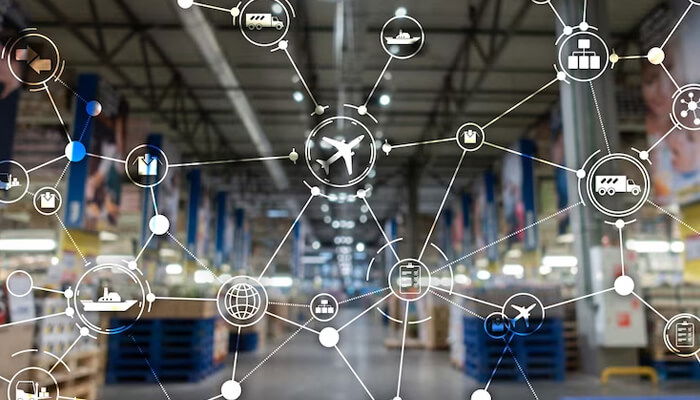Metal distribution industry has become an essential component of modern supply chains, acting as a vital bridge between extractors and end-users throughout numerous industries. Lately, several concurrent trends have had an impact on this sector due to developments in technology, modifications in market demand, and escalating emphasis on sustainability. In this article, we will observe how these trends are influencing metal distribution and its relevance for all involved parties.
Importance of Metal Distribution Industry
The metal distribution industry plays a crucial role in the economy by connecting metal producers with end-users across various sectors. It ensures the efficient flow of metals, provides a wide range of products, and offers value-added services such as customization and processing. Metal distributors’ expertise and market knowledge help customers make informed decisions, while their local presence and customer support ensure timely deliveries and personalized assistance. Moreover, the industry generates employment opportunities, supports local businesses, and contributes to the growth of industries relying on metals. The metal distribution industry’s significance lies in its ability to facilitate smooth operations, meet customer demands, and drive economic activities across sectors, making it an indispensable part of the supply chain.
Digital Transformation
The metal distribution industry has experienced a drastic transformation due to the adoption of advanced technologies such as automation, AI, and data analytics. Automated inventory management systems can now monitor stock levels in real-time, optimizing inventories and ensuring timely product deliveries. In addition, analytics and AI algorithms offer insights on customer preferences and demands, allowing distributors to adjust their services accordingly. Additionally, e-commerce solutions are becoming increasingly popular as they provide customers with the convenience of online ordering and tracking options. All in all, these innovations have led to greater efficiency within the industry while enhancing customer experiences at the same time.
Sustainable Practices
The metal distribution industry is beginning to focus step up their attention to the environment and customer expectations. To meet these needs, distributors are taking various approaches to reduce their carbon footprint such as utilizing eco-friendly packaging materials, energy-efficient logistics systems, and green technologies. There is also increased emphasis on encouraging customers in industries like construction and automotive to employ sustainable metals from recycled sources instead of relying solely on virgin materials in order to conserve natural resources. Furthermore, businesses that prioritize environmental issues can gain a competitive edge by meeting customers’ demands for more environmentally conscious suppliers.
Supply Chain Optimization
Efficient supply chain management is vital for metal distributors to meet customer demands, reduce costs, and ensure timely deliveries. To achieve this, distributors are adopting advanced technologies and implementing innovative practices. For instance, blockchain technology is being explored to enhance supply chain transparency and traceability, providing stakeholders with real-time visibility into the movement of metals from producers to end-users. This not only improves efficiency but also helps in ensuring compliance with regulations and quality standards. Furthermore, collaboration and partnerships within the supply chain are being strengthened, enabling distributors to share resources, optimize logistics, and offer value-added services. These collaborative efforts foster a more integrated and agile supply chain, capable of responding to market fluctuations and customer demands more effectively.
Value-added Services and Customization
To differentiate themselves in a competitive market, metal distributors are increasingly offering value-added services and customization options. These services can include metal processing, vessel fabrication, and surface treatment, among others. By providing these additional services, distributors can cater to the specific needs of their customers, offering tailored solutions and saving them time and resources. The ability to offer customized products and services helps build strong customer relationships and fosters long-term partnerships.
Global Market Expansion
The metal distribution industry is witnessing significant growth and expanding into new markets. Globalization and the emergence of emerging economies have created opportunities for distributors to explore new regions and tap into growing demand. This expansion requires distributors to adapt to diverse market conditions, regulatory frameworks, and cultural nuances. Strategic partnerships, local collaborations, and a deep understanding of regional dynamics are essential for successfully entering and operating in new markets.
Talent and Workforce Development
In the ever-changing world of metal distribution, businesses are making an effort to cultivate a knowledgeable and talented workforce. To keep up with current trends, companies are offering educational opportunities and training initiatives. Additionally, they are emphasizing digital literacy, data science aptitude, and technological proficiency so that their employees can remain competitive in the digital age. Moreover, these businesses are devoting resources towards attracting and maintaining young professionals who come from diverse backgrounds in order to bring fresh perspectives and drive industry progress.
Conclusion
The metal distribution industry is undergoing a significant transformation, driven by digitalization, sustainability, supply chain optimization, customer-centricity, and global market expansion. Embracing digital technologies, implementing sustainable practices, optimizing supply chains, offering value-added services, and investing in talent development are key strategies for distributors to remain competitive and thrive in this evolving landscape. By staying ahead of these trends, metal distributors can leverage new opportunities, enhance customer satisfaction, and contribute to a more sustainable and efficient metal supply chain.



